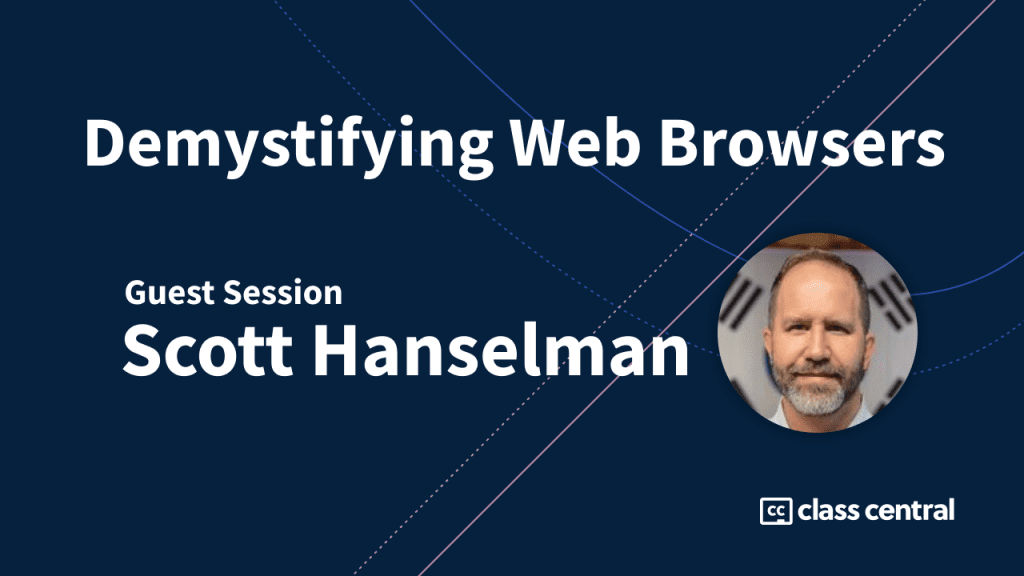Demystifying Browsers with Microsoft Engineer Scott Hanselman
What happens under the hood when you type a web address in your browser and click Enter?
After three intense months of activity, Class Central’s inaugural web development bootcamp is coming to a close. But in January, we’re doing it all over again. This time, there will be two bootcamps: a JavaScript bootcamp and an improved web development bootcamp. You can learn all about the new bootcamps and how to enroll here.
Like in our inaugural bootcamp, the new bootcamps will include weekly sessions with guest speakers. These are an opportunity for learners to listen to software engineers, researchers, and other professionals working in development or related fields talk about their craft. You can find all the guest talks of our inaugural bootcamp here.
Recently, we had the chance to listen to software engineer and popular podcaster Scott Hanselman — who’s worked at Microsoft for close to 15 years — demystify browsers and URLs by explaining step-by-step what happens when you type a web address in your browser and click Enter.
Demystifying Browsers & URLs
Nowadays, most people have some familiarity with internet browsers and how to find what they’re looking for on the Web. But that familiarity usually boils down to going to Google, typing a few keywords, and clicking on one of the top results.
The complexity of navigating the web has been abstracted away through years of software improvements and thanks to the emergence of services like search engines. And that’s great. Making the internet easier to navigate has made it more accessible.
But if you’re a prospective developer, or just a curious soul, you might want to know the nitty-gritty details of how browsers work, and exactly how they get you to your virtual destinations. That’s precisely what Scott’s talk is about. Here are some of the specific topics he covers:
- What are URLs? Scott discusses what URLs are, breaks them up into their different parts (protocol, domain, path), and goes over how they resolve to specific IP addresses — that is, how they lead to specific web servers around the globe.
- URL, WWW, DNS? Scott explains, that in the tech world, we have a tendency to accidentally gatekeep by overusing TLDs (three-letter acronyms). So he spends time clarifying what these mean, and more generally, touches on jargon of computer networking.
- What’s the domain name system? These special servers map domain names to IP addresses. And you can have one at home, if you want. Scott explains how he uses a DNS server at home; most notably, to avoid advertisement and monitor his network activity.
- What are 404s? You’ve probably seen a 404 error before, when trying to visit a page that couldn’t be found. But what about a 300 code, or a 500? These are all HTTP response codes, and in his presentation, Scott discusses their meaning and uses.
- What are APIs? Scott discusses web APIs, endpoints, and query parameters, and how these can be used to serve data in a machine-readable format. He even shows an example of a secure API he’s created to keep his blood sugar levels in check.
So if you’d like to understand how browsers work and the processes that underpin Web navigation — from the moment you type an address in your browser, to the moment a full-fledged website shows up on your monitor — I encourage you to watch Scott’s full talk below.
Tags







